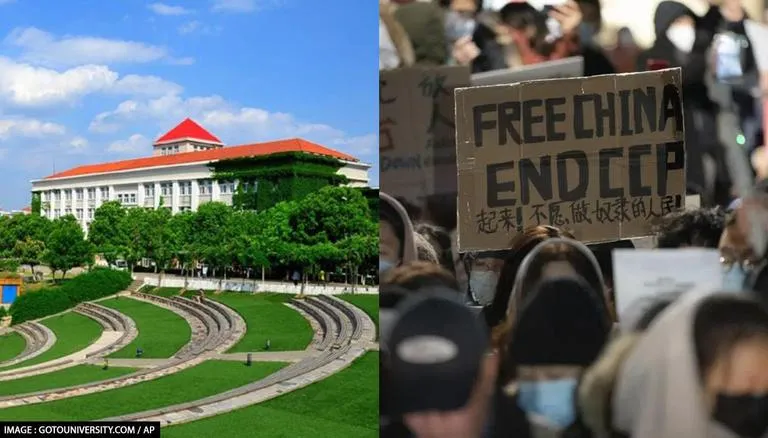Students in China’s Nanjing Tech University are protesting after COVID-19 cases were discovered. Some reports state that they are protesting because they fear they will not be allowed to return to their home during winter as the university will be locked down due to the emergence of COVID-19 cases. Some reports suggest that they are protesting due to the existing COVID restrictions. The most likely scenario is that some form of restrictions have been imposed due to the COVID cases, resulting in the protests.
China is reportedly easing some of the COVID restrictions in response to the recent widespread protests, but according to analysts at Nomura, 53 cities in China remain under some form of lockdown. In videos uploaded on social media, the protestors are shouting something about Foxconn, probably referring to the recent protests there. As the students at Nanjing Tech University protested, the police made its way to the campus. One female student screamed “oh! I’m so scared” to mock the police whilst other students booed.
Importance of Nanjing
Nanjing is an important Chinese city, located in eastern China. It was the capital of several dynasties throughout Chinese history, including the Ming Dynasty and the Republic of China. During the Ming Dynasty (1368-1644), Nanjing served as the capital of China for nearly a century. The Ming emperors relocated the capital from Beijing to Nanjing in 1368, and the city remained the capital until 1421, when the Ming court moved back to Beijing. However, Nanjing continued to play an important role in Ming politics and was often used as a secondary capital, especially during times of crisis or when the Ming emperors needed to escape from Beijing.
The city has witnessed many prominent student protests, the current student protests are relatively small compared to the previous ones, which played a crucial role in China’s development as a nation. The most prominent one was the December 9th Movement, also known as the December 9th Incident. It was a student-led protest that took place in Nanjing in 1935. The protest was sparked by the Japanese invasion of Northeast China and the subsequent signing of the He-Umezu Agreement, which allowed Japan to station troops in Northeast China. Students in Nanjing and other cities organised strikes and other forms of civil disobedience to protest the government’s decision to allow Japanese troops into China.

